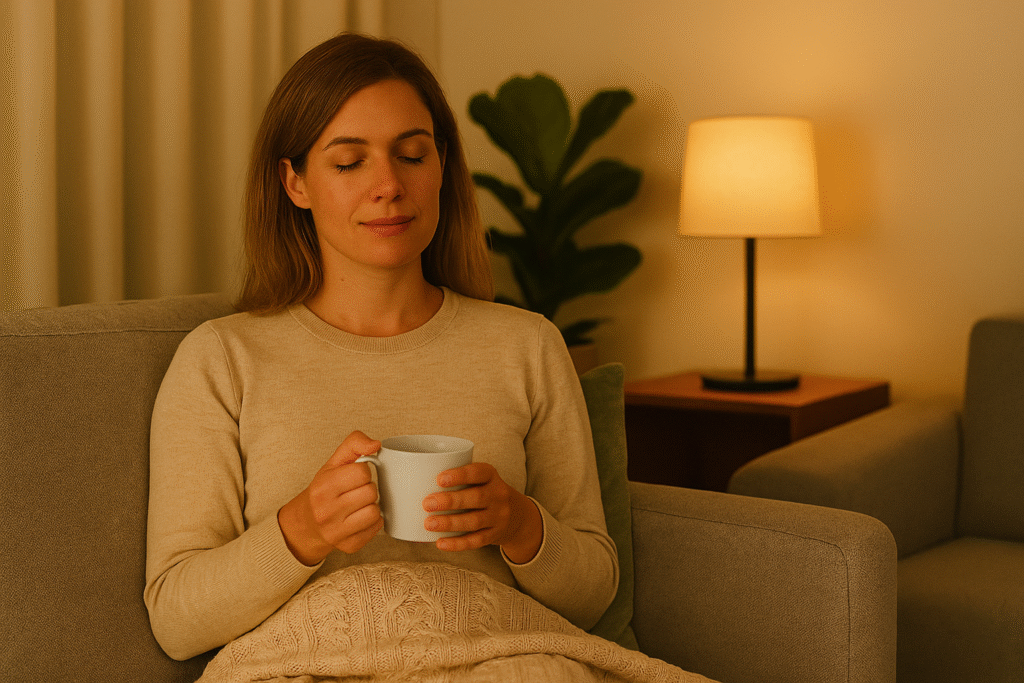
Sleep isn’t just about closing your eyes at night. For many women over 35, it becomes one of the biggest challenges in everyday wellness. Hormonal changes, busy schedules, and stress often make restful sleep harder to achieve. The result? Waking up groggy, drained, and already behind before the day even begins.
If you’ve been wondering why sleep feels different now compared to your 20s—or if you’re simply looking for realistic ways to wake up refreshed—this guide is for you.
Why Sleep Gets Tricky After 35
Your body is shifting in ways you may not always notice, but they can deeply impact sleep:
Hormonal changes: Perimenopause often starts in the mid-to-late 30s, bringing shifts in estrogen and progesterone that affect sleep cycles.
Stress overload: Balancing work, family, and personal responsibilities can trigger cortisol spikes, making it harder to unwind at night.
Lifestyle factors: Late-night screen time, caffeine, or irregular routines tend to hit harder with age.
The good news? With a few small adjustments, you can restore restful nights and mornings that feel lighter.
1. Create a Gentle Bedtime Routine
Your body loves signals. When you send cues that it’s time to wind down, your brain follows.
Dim the lights an hour before bed.
Try a short stretch or gentle yoga sequence.
Swap scrolling for a calming ritual—reading, journaling, or even a warm bath.
Think of it like preparing a child for bedtime: the rhythm matters more than perfection.
Recommended article: How to create a sustainable morning routine
2. Mind Your Evening Diet
What you eat (and drink) after 6 p.m. makes a difference.
Avoid caffeine after lunch (yes, even “just one coffee” can linger for hours).
Choose light, balanced dinners—too heavy, and digestion can disrupt deep sleep.
Herbal teas like chamomile, lavender, or valerian root may gently encourage relaxation.
Pro tip: keep a consistent cut-off for late-night snacks. It trains your body to settle more easily.
3. Build a Sleep-Friendly Bedroom
Your bedroom should be a place your body associates only with rest.
Cooler temperatures (around 65–68°F / 18–20°C) help trigger natural melatonin release.
Invest in breathable sheets and supportive pillows that fit your body.
Keep electronics out of reach—especially that phone. Blue light delays your brain’s “sleep clock.”
Even small tweaks, like blackout curtains or a lavender-scented diffuser, can create a deeper sense of calm.
4. Manage Stress Before It Manages You
Stress is one of the biggest sleep thieves for women over 35.
Practice deep breathing: inhale through the nose, exhale slowly through the mouth.
Try mindfulness or guided meditation apps (just a few minutes works).
Write down tomorrow’s to-do list before bed so your brain doesn’t cling to it all night.
Think of it as decluttering your mind the same way you’d tidy up your kitchen.
5. Keep a Consistent Schedule
Your circadian rhythm thrives on predictability.
Aim to go to bed and wake up at the same time—even on weekends.
Expose yourself to natural light in the morning to reset your internal clock.
Limit naps to 20 minutes if you need them; too long, and they disrupt nighttime rest.
Consistency tells your body when to release melatonin and when to get alert again.
6. Move Your Body—But Time It Right
Regular exercise supports better sleep quality, but timing is key.
Morning or afternoon workouts are best.
Avoid intense exercise within 2–3 hours of bedtime—it can keep you wired.
Gentle evening movement (like stretching or a walk) is fine and may help with relaxation.
The goal isn’t to exhaust yourself into sleep—it’s to balance energy naturally.
7. Reevaluate Your Sleep Needs
Most adults need 7–9 hours, but quality matters more than the exact number. After 35, paying attention to sleep cycles (90-minute intervals) may help you feel more refreshed. For example, 7.5 hours often feels better than 8.
Keep a sleep journal or use a simple app to notice patterns. Sometimes, small tweaks in bedtime or routine reveal what your body truly needs.
8. Know When to Seek Extra Support
If sleepless nights persist despite healthy habits, it might be more than lifestyle:
Sleep apnea, restless legs syndrome, or hormonal imbalances can require professional support.
Talk with a healthcare provider if you often wake up unrefreshed, snore heavily, or experience frequent night sweats.
There’s no shame in asking for help—it’s part of taking wellness seriously.
Recommended read :
- Why a Calm Evening Routine Matters After 30 (And How to Build One That Works)
- Unlock Evening Rituals to Balance Hormones Naturally For Women Over 40
Final Thoughts: Rest as Self-Care 💖
Better sleep isn’t about perfection; it’s about listening to your body and giving it what it needs at this stage of life. For women over 35, sleep is one of the most powerful wellness tools—fueling energy, mood, focus, and long-term health.
So tonight, choose one small habit to try: maybe dimming the lights earlier, swapping your evening coffee for herbal tea, or writing down tomorrow’s list before bed.
Each choice is a step toward mornings that feel lighter and brighter.
Your Turn:
What’s your biggest sleep struggle right now—and have you found a routine that helps you wake up refreshed? Share your thoughts in the comments; your experience might inspire another woman reading this today.



